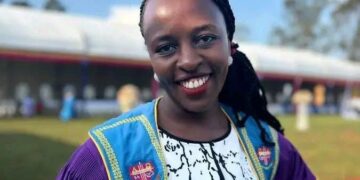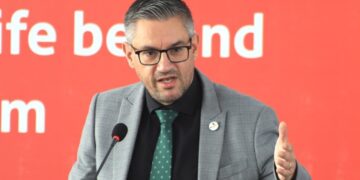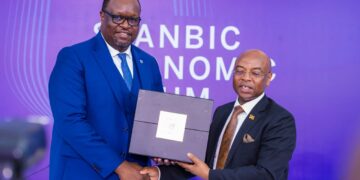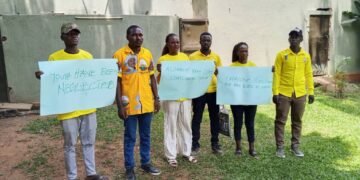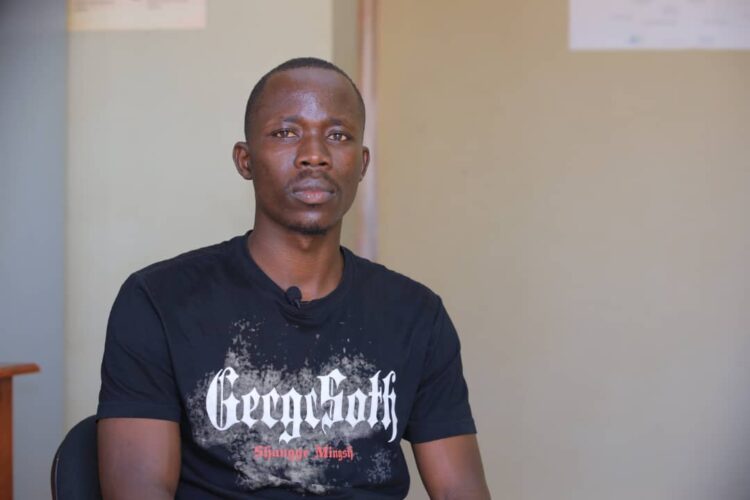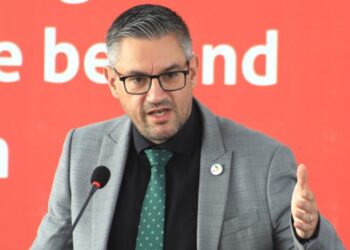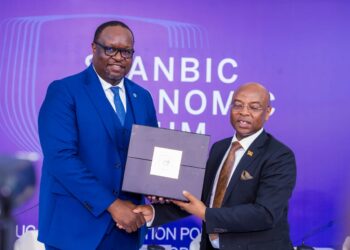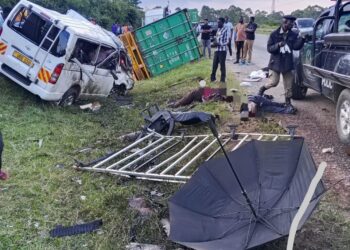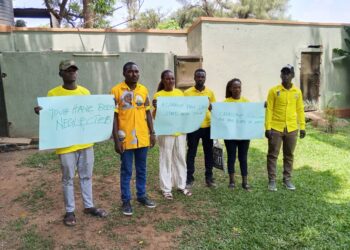OPINION
From 8–10 September 2025, African leaders, activists, and communities will gather in Addis Ababa, Ethiopia for the Second Africa Climate Summit (ACS2). This summit builds on the legacy of the inaugural Nairobi Summit in 2023 and is themed: “Accelerating Global Climate Solutions: Financing for Africa’s Resilient and Green Development.” While ACS2 is framed as a platform for Africa to position itself as a leader in the global climate agenda, it must go beyond speeches and promises. It must provide space for all African voices from grassroots communities and traditional leaders to women, youth, civil society and our heads of states. For too long, Africa has been introduced to false solutions designed elsewhere. This is the moment for Africans to unite and forge our own climate pathways. It must be African-led indeed, we do not want foreigners to lead and dominate in these discussions as it has been in the past.
As Africans, we must clearly state that we need reparations, not charity because Africa is one of the most climate-vulnerable regions in the world, yet contributes the least to global emissions. The polluters who caused this crisis must be held accountable. We do not seek charity. We demand reparations for damages, restoration for our continent, and justice for our people. These payments must come as grants, not loans, and they must recognize Africa not as a sacrifice zone for the profits of polluters, but as a continent of dignity, solutions and knowledge. In addition, we should build African solutions, real climate action in Africa means investing in community-owned knowledge and practices, traditional wisdom and the lived innovations of young people and women who adapt daily to the realities of climate change. If properly financed, these local solutions can achieve the resilience and sustainability we all seek. We must reject false solutions like carbon credits, GMOs, and market-based tricks that allow polluters to continue business as usual while Africa carries the burden. Instead, the focus should be on renewable energy, technology transfer, and community-driven innovations that respect both people and nature.
We also need to rethink development for Africa. As a youth from the Albertine region of Uganda where oil exploitation has displaced communities, threatened Lake Albert’s fisheries, and endangered Bugoma Forest’s biodiversity, I know that development cannot be reduced to money in bank accounts. For African communities, development means plentiful harvests from our farmland, abundant fish from our lakes, thriving forests and biodiversity and a stable climate that sustains life. Development must be about coexistence with nature, not its destruction. Furthermore I encourage all Africans to demand for unity against division: civil society, governments and communities must stand together. Too often, we have been divided through misunderstandings, name-calling, and competition divisions rooted in the legacy of colonization and now deepened by neocolonialism through debt and resource exploitation. Africa will only win when we act as one. A strong African Climate Action and Advocacy Network with a unified policy on natural resource management can lead us forward. This unity must include traditional leaders for their wisdom, youth and women for their energy and lived experience, and African states for their political power.
From the pre-event engagements to real events, I also call on our concerted efforts in resisting new forms of exploitation. We must remain vigilant against new forms of exploitation disguised as climate action for Africa by non-Africans. For instance, the G20 will meet in Africa later this year to discuss their “Just Energy Transition” already eyeing Africa’s critical minerals. This is green energy neocolonialism, not justice. We must not allow Africa to be used as a laboratory or resource bank for others’ benefit. No new fossil fuel exploration. No greenwashing. No exploitation in the name of climate.
As Africans, we must be united to demand the following through our leaders, youth and civil society representatives gathering in Addis Ababa, our demands must be clear:
Debt cancellation for Africa.
Climate justice and reparations from the Global North.
Investment in African-owned renewable energy and community-driven solutions.
Technology transfer that empowers Africans to sustainably extract and use their own resources.
A new definition of development rooted in African realities and coexistence with nature.
I conclude by saying, Africa does not need outsiders to define our path to development and we do not need to use same trend or methods to become rich. Perhaps! Development for Africa is different to what others may call development. We have our knowledge, wisdom and courage to shape our own. In paying reparations for and restoration of Africa, Global North must prioritize providing grants to develop our afro-centric technology to build our human capital for our resources utilizations ourselves and the rich polluters must stop their new trends of organizing “Big” meetings on our continent in the names of exploiting our resources the more.
By Emmanuel Ongyeer,
The writer is a Programs Director, Nature Talk Africa
Email: emmanuelongyeer@gmail.com















